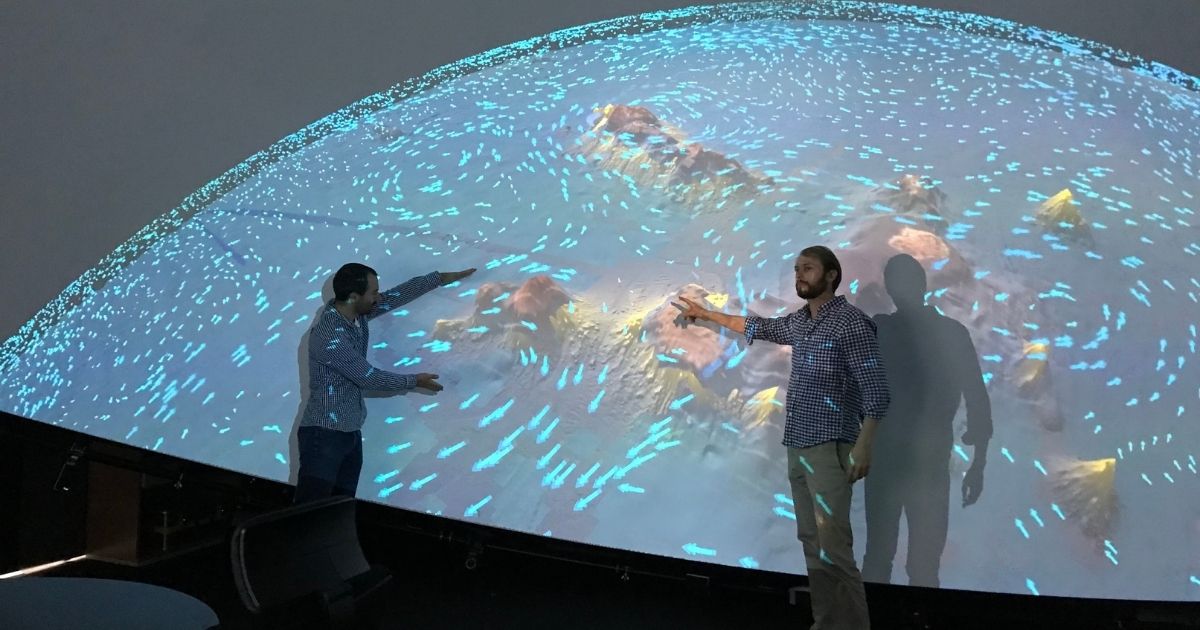Digital ocean twins make it possible to predict future developments in the ocean with greater accuracy and to better weigh up possible uses.
These virtual representations of the ocean are thus not only an important tool for climate research, but also for climate policy. In order to further advance the technical and content-related development, the “Digital Twins of the Ocean” (DITTO) programme coordinated at GEOMAR Helmholtz Centre for Ocean Research Kiel hosted an international expert meeting on digital ocean twins within the framework of the German and the previous British G7 presidency. In a concluding statement that has now been published, the participants emphasised the importance of international partnerships and close cooperation with potential users.
Reliable projections of future developments of the ocean are necessary for an effective climate policy. They are based on internationally coordinated ocean observation that links state-of-the-art research infrastructures with global climate and ocean models. Digital ocean twins play an important role in this context. These detailed digital representations of coastal and ocean regions are used to test ocean models and simulate environmental changes so that future developments in the ocean can be assessed with greater accuracy. Based on this data, the use of the ocean for energy production, fishing and tourism can be made more sustainable. Protected zones can be established with precision.
Digital ocean twins were also the central topic of the “International Digital Twins of the Ocean Summit” held on 4 and 5 May 2022 in London, Great Britain. The event focused on the initiative “Digital Twins of the Ocean” (DITTO). The global programme is coordinated at GEOMAR Helmholtz Centre for Ocean Research Kiel within the framework of the United Nations Decade of Ocean Research for Sustainable Development (2021-2023). The London meeting brought together 80 experts and policy makers from 19 countries. More than 300 interested people from 30 countries followed the presentations online and contributed their questions.
In a concluding statement that has now been published, the participants collected their expectations for the next steps. “There was consensus that we need a joint international project that is sustained by partnerships – especially partnerships with societies in the Global South and young ocean experts,” summarises Professor Dr. Martin Visbeck, physical oceanographer at GEOMAR and project coordinator of DITTO. “These partnerships need to involve users of ocean information to ensure that we put their issues and challenges at the heart of the development of digital twins.”
DITTO is a link between the G7 Presidencies of the United Kingdom (UK) and Germany. The initiative has been significantly developed in the UK G7 Presidency 2021 and will be implemented in the German G7 Presidency 2022. As climate and marine research plays a central role in both G7 presidencies, State Secretary at the German Federal Ministry of Education and Research (BMBF) Judith Pirscher and the UK Environment Secretary Rebecca Pow jointly opened the conference on 4 May 2022.
“The BMBF has already laid an important foundation for diverse international activities on marine and climate research by hosting the High-Level Kick-off of the UN Decade of Ocean Research for Sustainable Development in 2021. Within the framework of the German G7 Presidency, we are working interdepartmentally on a G7 Ocean Deal to advance joint initiatives for the protection and sustainable use of the seas and oceans,” explained State Secretary Judith Pirscher. “One focus of the BMBF's G7 activities is research for climate change. Digital ocean twins will make a decisive contribution to this. They will not only close knowledge gaps in ocean forecasting, but also generate concrete options for action in climate policy.”
“DITTO creates the conditions for ocean observations, ocean simulation and visualisation of the information,” emphasises Professor Visbeck. “Only when the data, models and information are shared with all user groups, digital twins will unfold their global impact and enable each coastal state, the economy and civil society to develop a joint optimised strategy for sustainable ocean use. In the process, modern methods of ocean observation can be combined with artificial intelligence to address key future issues for humanity.”



